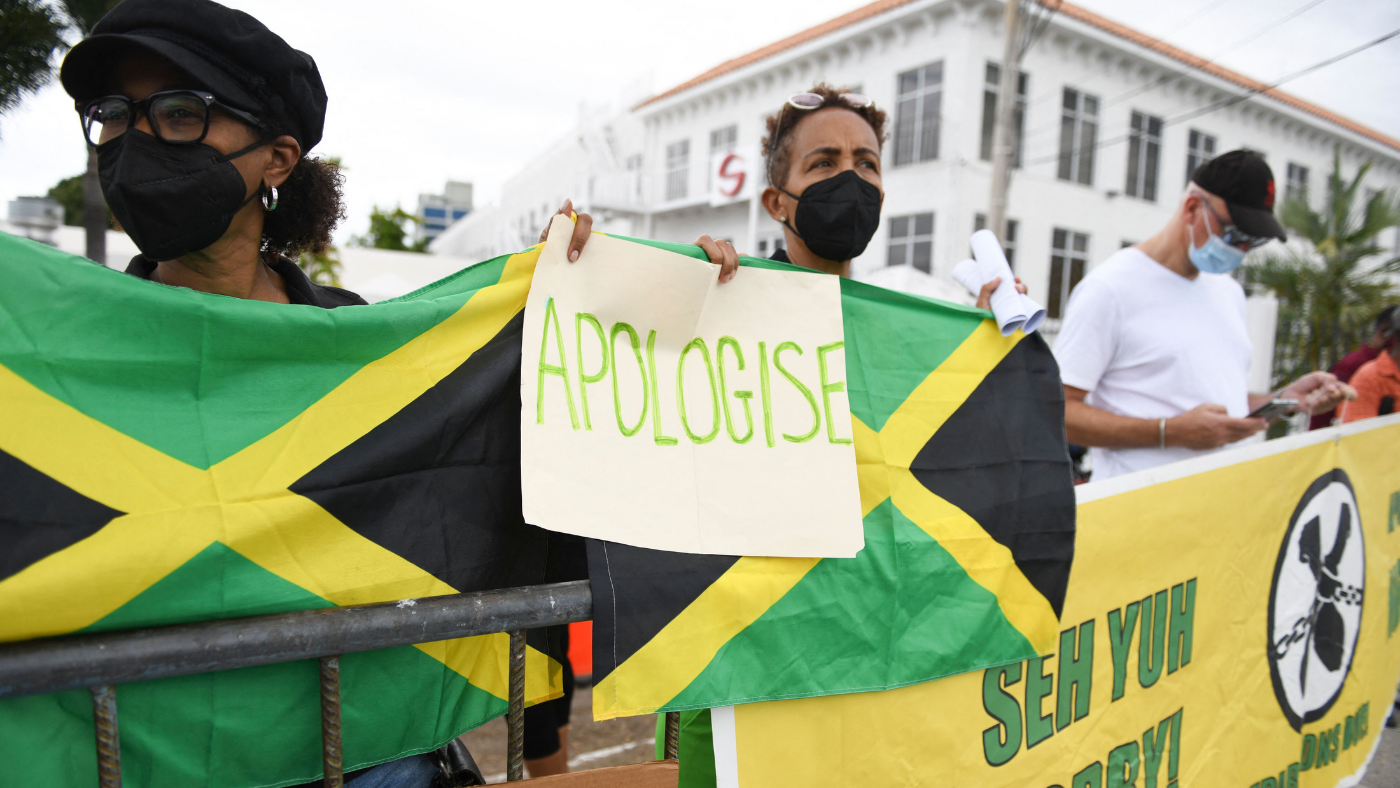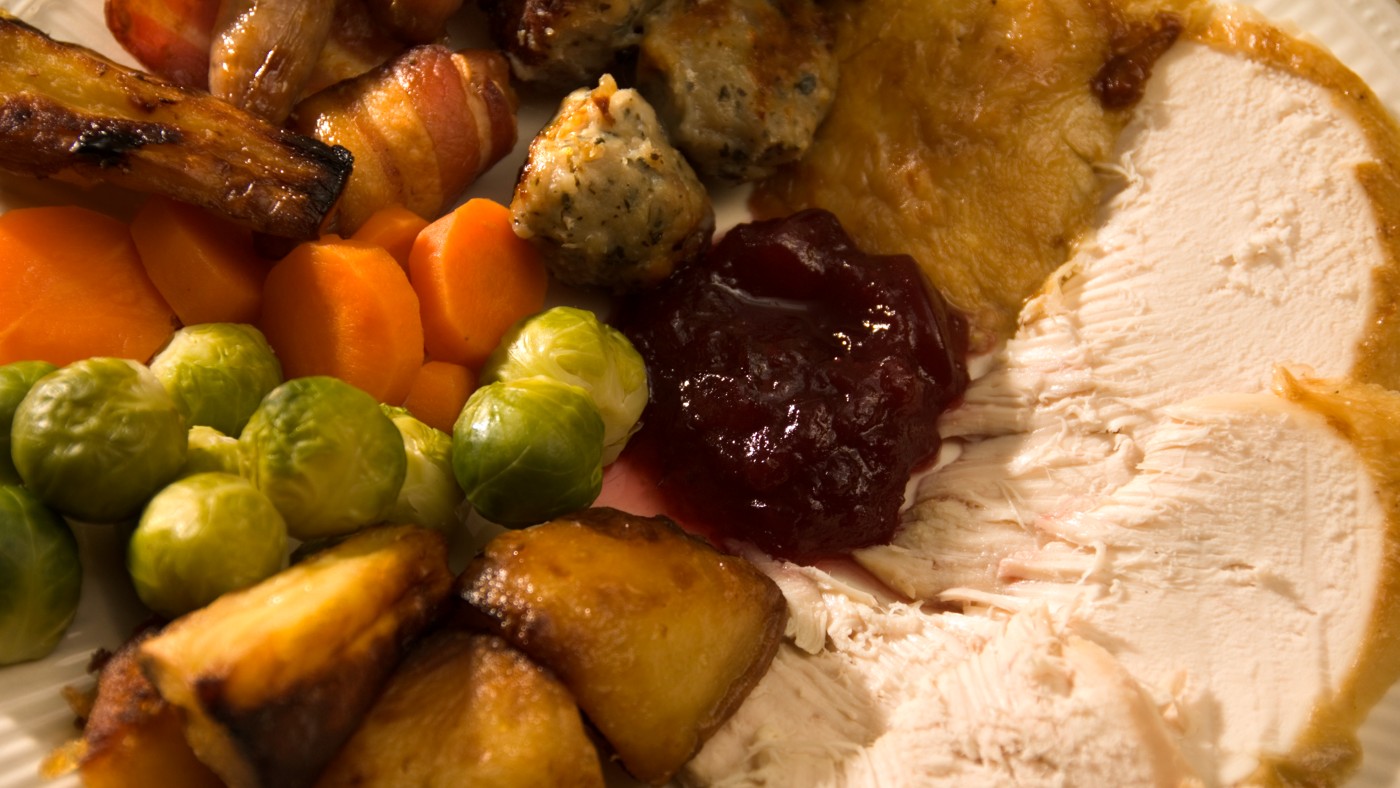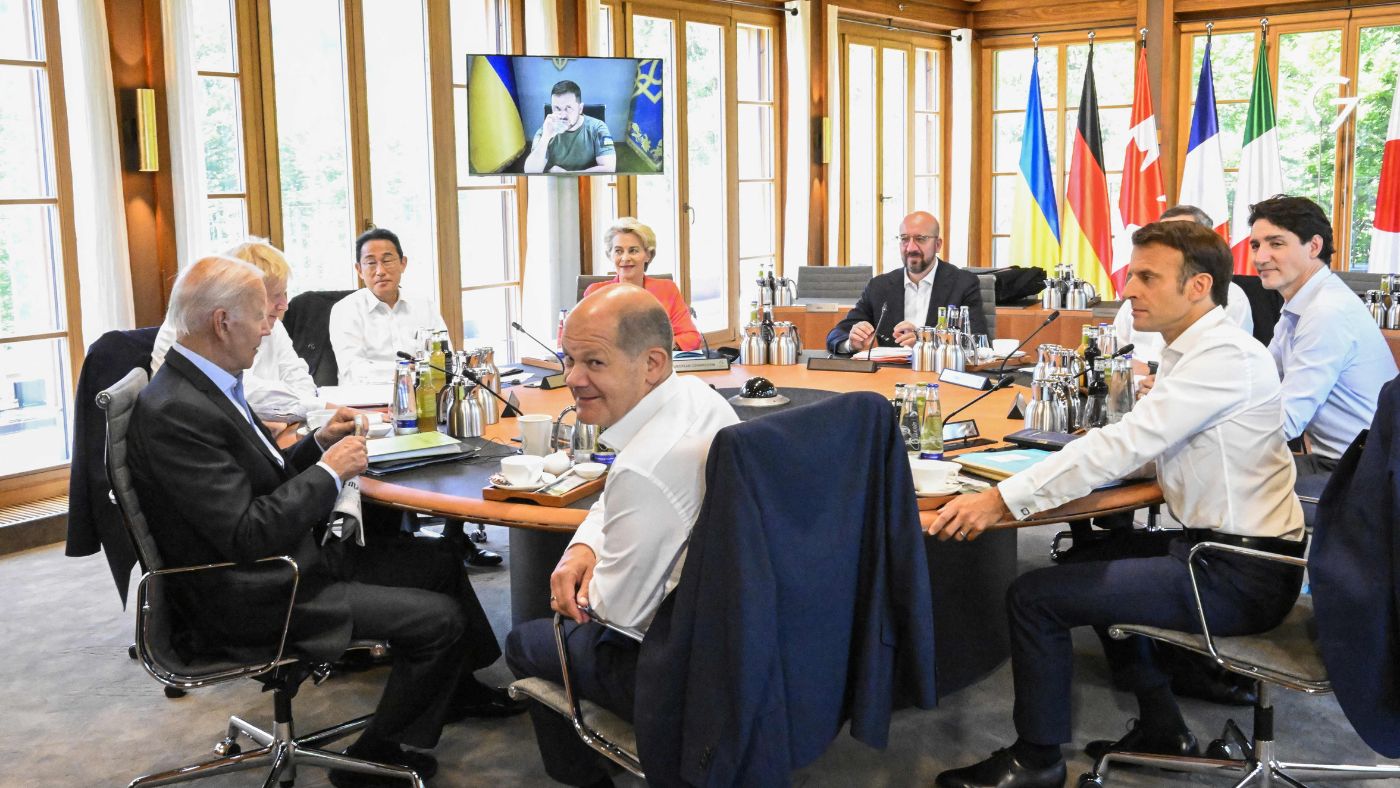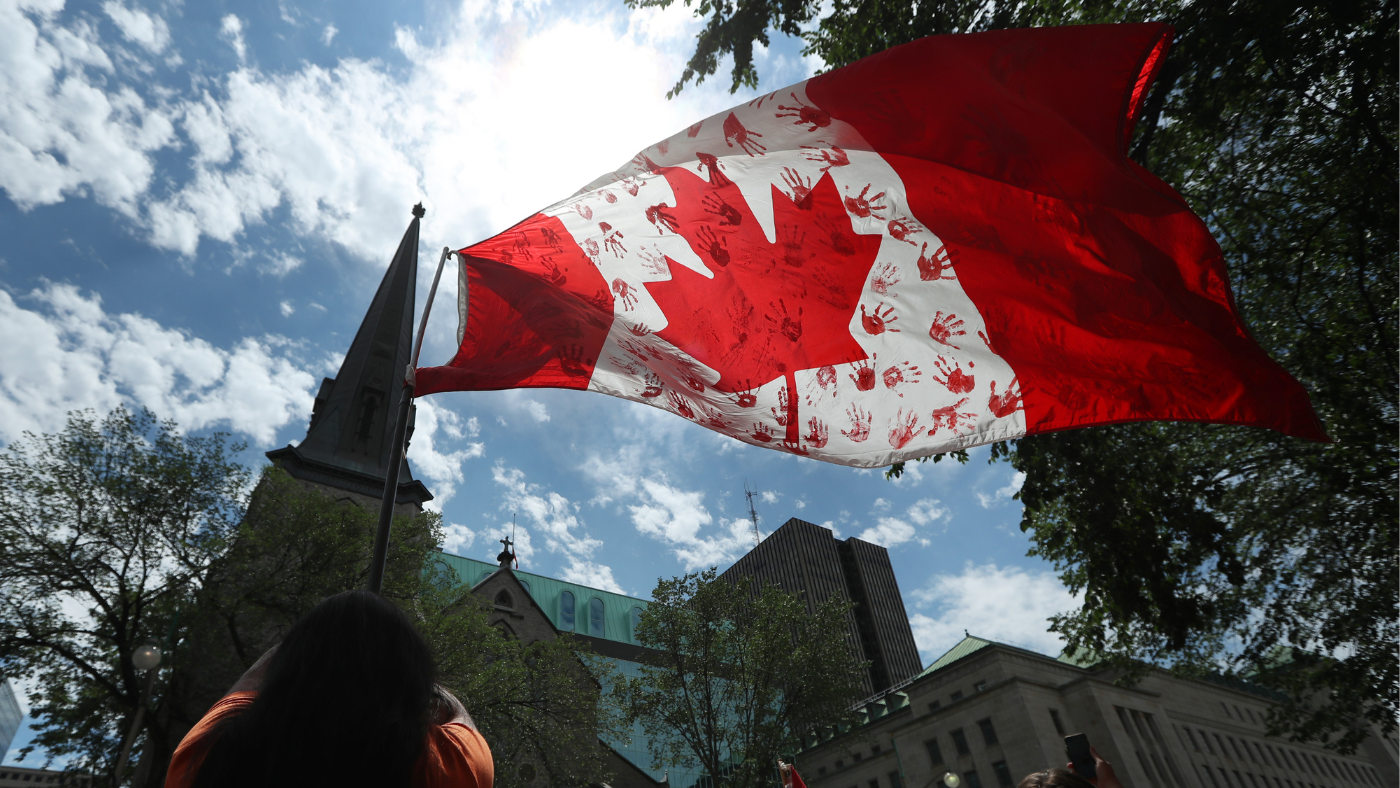‘Jamaica’s reckoning with Britain is long overdue’
Your digest of analysis from the British and international press

- 1. As a historian of slavery, I know just how much the royal family has to answer for in Jamaica
- 2. The art market cannot get enough Andy Warhol Marilyns
- 3. Biden’s Rohingya genocide declaration can’t just be empty words
- 4. Where are all the gender neutral baby clothes?
- 5. Why everyone, even feminists, likes Mother’s Day
A free daily email with the biggest news stories of the day – and the best features from TheWeek.com
You are now subscribed
Your newsletter sign-up was successful
1. As a historian of slavery, I know just how much the royal family has to answer for in Jamaica
Trevor Burnard at The Guardian
on royal recognition
Royal tours are usually “full of cheering people lining the streets and gushy accounts of glamorous dresses”, writes Trevor Burnard at The Guardian. “There has been some of that” during Prince William and Kate Middleton’s trip to the Caribbean. “But there have also been protests, especially in Jamaica.” And, he adds: “To top it all off”, the country has reportedly “begun the process of removing the Queen as head of state”. Burnard, the University of Hull’s Wilberforce professor of slavery and emancipation, says: “Such a reckoning with Britain and its state is long overdue.” Jamaica “enriched Britain by filling the coffers of the Treasury from taxes levied on sugar and rum” in the 18th century. “Black people suffered greatly for white people’s enjoyment of sweet things”, he writes. The Duke and Duchess of Cambridge “might have acknowledged” the fact that “more Africans arrived in Kingston to become plantation slaves than arrived in any other place in British empire… rather than kicking a football around and playing bongos in Trench Town”. Jamaica is today “a poor country”, and it would be a “good thing if Britain recognised its historical responsibility for creating those conditions of poverty, while benefiting from Jamaican wealth”. That recognition could “start with the royal family”.
The Week
Escape your echo chamber. Get the facts behind the news, plus analysis from multiple perspectives.

Sign up for The Week's Free Newsletters
From our morning news briefing to a weekly Good News Newsletter, get the best of The Week delivered directly to your inbox.
From our morning news briefing to a weekly Good News Newsletter, get the best of The Week delivered directly to your inbox.
2. The art market cannot get enough Andy Warhol Marilyns
John Gapper at The Financial Times
on an ‘artist’s market’
“Amid the world’s problems, the top echelon of the art market is doing just fine,” writes John Gapper at the Financial Times. That’s in response to the news that an Andy Warhol silkscreen of Marilyn Monroe is expected to sell for around $200m when it goes up for auction in May. And while the auction house describes it as “an unmatched example of 20th-century art by the most important American artist”, Gapper says that’s true “up to a point: it is matched extremely closely by four other Marilyn prints” produced by Warhol in 1964. Warhol “grasped early on” that “mechanical reproduction helps to establish an artist’s market”. He was “intrigued by finance” and “multiple prints provide liquidity and price-setting benchmarks”. Gapper says that “a painting becomes a token of something more psychologically valuable – admission to a club of wealthy aesthetes… Buying a Warhol or a Jasper Johns absolves a billionaire of being a mere philistine.” Warhol was “ahead of his time in producing plenty of Marilyns, Maos and Elvises”.
A free daily email with the biggest news stories of the day – and the best features from TheWeek.com
3. Biden’s Rohingya genocide declaration can’t just be empty words
Josh Rogin at The Washington Post
on stopping atrocities
This week, the US announced that Russia was committing war crimes in Ukraine – “28 days into the invasion”, says The Washington Post’s Josh Rogin. When the same government “announced on Monday that it had determined that Myanmar’s military had committed genocide against the Rohingya, it was more than five years after the violence there began”. The “close timing” of the two statements “is likely no coincidence”, writes Rogin. The Biden administration “wants to signal that the Ukraine crisis hasn’t completely consumed its foreign policy bandwidth”. Of course, “the Ukraine crisis and the Myanmar situation are not the same”. Vladimir Putin’s crimes “are nowhere near the scope and scale of the Myanmar military’s broad campaigns of mass murder, mass torture, mass rape, ethnic cleansing and other horrors – at least not yet. But that’s kind of the point.” That “there have been eight genocides since the Holocaust should tell us that we are not doing enough to stop mass atrocities or hold perpetrators accountable”. If genocide is “normalized, it will imperil our greater goals of stability, security and a common humanity”.
4. Where are all the gender neutral baby clothes?
Rose Stokes at Metro
on beyond pink and blue
Rose Stokes says it was around her 20-week scan that people started asking “about the sex of my growing baby”. Writing at Metro, she says “it makes sense”, given that’s when “expectant parents can choose to find out the genitals of their child. A lot of parents opt not to find out for a variety of reasons”, but for others, “being able to know the slightest detail about your child in gestation helps to provide some stable ground in the sea of unknowns of impending parenthood”. Stokes and her partner did find out – and her friends wanted to know too, so they could buy clothes in the “appropriate colour: pink or blue”. This writer doesn’t “subscribe to normative gender stereotypes”, and she was “shocked that in 2022, the offering of most high-street brands when it comes to baby clothes is still so antiquated”. While boys clothes “are plastered in words that inspire adventure and physical play”, girls “are offered princesses and unicorns, with words emphasising their physical beauty or fragility”. Given “all the progress” that’s been made, “how have we not all moved on from these rigid stereotypes that do real harm to absolutely everyone?” Only “a few brands” provide “more gender neutral offerings”, and this writer is opting for clothes “in a full kaleidoscope of colours”.
5. Why everyone, even feminists, likes Mother’s Day
Melanie McDonagh at The Irish Times
on an inclusive festival
Mother’s Day “wasn’t always a thing in Ireland”, writes Melanie McDonagh at The Irish Times. “Until the 1960s it didn’t feature; by the 70s the highlight was a bunch of daffodils” and a card – a far cry from today’s “orgy of consumption”. Mothering Sunday is largely “a southern English custom”, with some early evidence from the 17th century indicating that “servants returned to their own parish church and visited their mothers” on the Sunday midway through Lent. Today’s “full-blown, commercial, sentimental festival” owes “everything to Anna Jarvis of Philadelphia”, who campaigned for a day to “honour all mothers; the first was held in the US in 1908”. McDonagh says: “It took next to no time for US florists, confectioners and greeting-card manufacturers to realise the commercial possibilities” of the occasion – something Jarvis later “revolted at”. “What’s interesting” about Mothering Sunday today “is that it has survived despite being a celebration of the most traditional aspect of women’s identity: being a mother”. This writer says it’s “probably the most inclusive” of festivals in the calendar, “since everyone had or has a mother”.
-
 Political cartoons for February 20
Political cartoons for February 20Cartoons Friday’s political cartoons include just the ice, winter games, and more
-
 Sepsis ‘breakthrough’: the world’s first targeted treatment?
Sepsis ‘breakthrough’: the world’s first targeted treatment?The Explainer New drug could reverse effects of sepsis, rather than trying to treat infection with antibiotics
-
 James Van Der Beek obituary: fresh-faced Dawson’s Creek star
James Van Der Beek obituary: fresh-faced Dawson’s Creek starIn The Spotlight Van Der Beek fronted one of the most successful teen dramas of the 90s – but his Dawson fame proved a double-edged sword
-
 Nan who charges family for Christmas dinner puts up price
Nan who charges family for Christmas dinner puts up priceTall Tales And other stories from the stranger side of life
-
 Man caught after driving without licence for 50 years
Man caught after driving without licence for 50 yearsfeature And other stories from the stranger side of life
-
 Harry & Meghan: a right royal case of sabotage?
Harry & Meghan: a right royal case of sabotage?Talking Point The timing of the Duke and Duchess of Sussex’s new Netflix documentary trailer has been widely criticised
-
 ‘The UK’s malaise will not end with the Prime Minister’s exit’
‘The UK’s malaise will not end with the Prime Minister’s exit’Instant Opinion Your digest of analysis from the British and international press
-
 ‘Police tactics are not getting worse, they are simply being filmed’
‘Police tactics are not getting worse, they are simply being filmed’Instant Opinion Your digest of analysis from the British and international press
-
 ‘G7 leaders missed a golden opportunity’
‘G7 leaders missed a golden opportunity’Instant Opinion Your digest of analysis from the British and international press
-
 ‘It takes some soul searching to celebrate Canada Day’
‘It takes some soul searching to celebrate Canada Day’Instant Opinion Your digest of analysis from the British and international press
-
 ‘Breakthrough on abortion rights could be there if Biden reaches for it’
‘Breakthrough on abortion rights could be there if Biden reaches for it’Instant Opinion Your digest of analysis from the British and international press